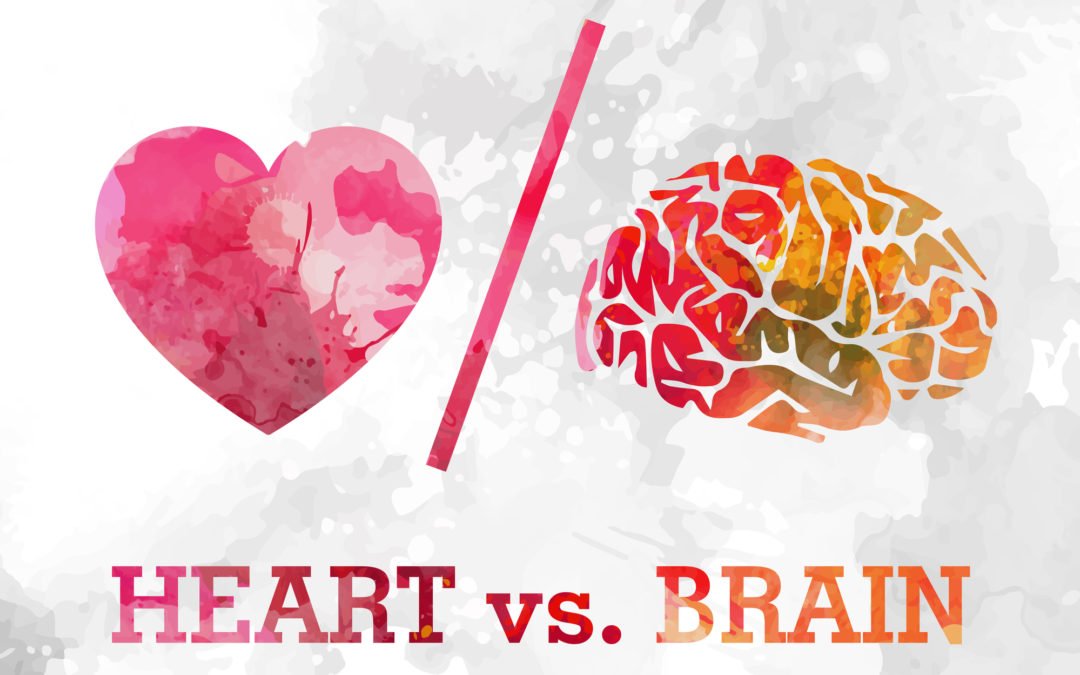There are two fundamental requirements that every business owner must consider when building a thriving organisation:
- Quality systems, processes and game plans, which I call ‘the brain’ of the organisation.
- Quality leadership, engagement and culture, which I call ‘the heart’ of the organisation.
In humans the two most important organs of the body are the brain and the heart, and we cannot survive without them both functioning. Whilst they will work with only a small portion of blood flow, they will be working harder than they should be, and it’s not sustainable long term. I liken this analogy to the way that most organisations are just surviving. They have just enough energy to sustain “life” but no capacity to grow and expand,
Contrast this to what happens when you have an unlimited amount of blood flow, full of fresh oxygen. The brain and heart work in unison at full capacity, and as a result are better equipped if there are problems. This creates a thriving body (or organisation) which translates into happy team members who deliver greater productivity and profitability, thus enabling the growth of the business.
Dynamic Flow
So how do we improve the blood flow in the organisation?. Good communication is the bloodline of any successful business, and if communication is slow, then the organisation cannot flow. In larger businesses, departments often struggle to cross-pollinate relationships because individuals don’t know who their colleagues are, only what they do. In the worst cases team members actually sabotage the growth of the business by with holding essential information from colleagues and competing for resources. These problems are mitigated when team members appreciate and understand their colleagues on a more personal level, and so can empathise with what is happening to them. When this occurs the team members become more highly engaged because as in the words of Theodore Roosevelt: “No one cares how much you know until they know how much you care.”
‘Group Activation Systems’
For a long time it was believed that just the business owner was solely responsible for creating team engagement, however we now appreciate that everyone in the business is responsible for creating team engagement. Without actively engaged team members, the leadership message becomes heavily diluted, and motivation will quickly fades. The heart of every organisation is its people and their contribution so we need to turn our attention to our team members and how to get them engaged through the application of new, innovative and inclusive methods. Company training is the least desirable way for team members to learn. Instead we need an all-inclusive Group Activation System that is neurologically designed and proven to reactivate team members.
Research has shown that 90% of today’s business leaders think an engagement strategy has a positive effect on business success, yet only 25% of them have a game plan to execute this!. In today’s competitive world, your people are your competitive edge. Old school business strategies and ‘knowledge dumping’ training programs are no longer sufficient when it comes to employee activation. The game has changed. Have you changed your game to keep up?
As a valued client I am delighted to offer you complimentary access to a brand new online video book (worth $97) that contains exclusive content from four leading engagement specialists. Each chapter focuses on a key element of employee disengagement: helping you to understand what it is, and giving you the tools and tips you need to combat this phenomenon head on. The result? You’ll be ready to re-motivate, re-inspire and re-engage your team as we head into 2019 and beyond.
To access this resource simply go to https://www.engageandgrow.com.
Your team – and your business – will thank you for it.

Julia Felton (aka The Business Wrangler) is the founder of Business HorsePower. Business leaders, entrepreneurs and executives hire her to accelerate their business performance by harnessing the energy of their people to work more collaboratively together. By aligning purpose with actions the team achieves exponential results as everyone starts pulling in the same direction.
Julia believes that business is a force for good and through designing purpose-driven businesses that leverage the laws of nature, and the herd, you can create businesses founded on the principles of connection, collaboration and community that make a significant impact in the world.






